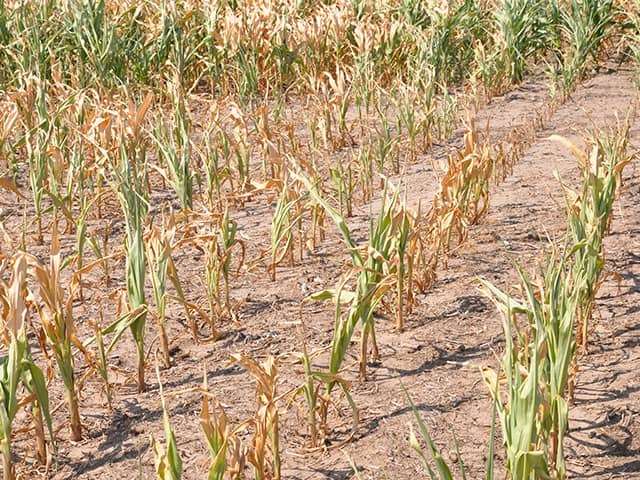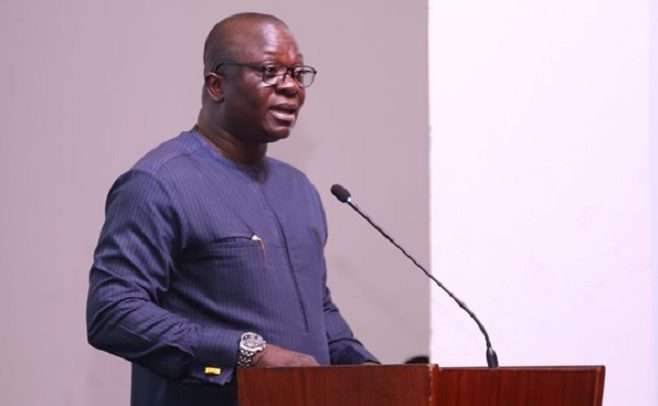In the face of unprecedented drought conditions ravaging parts of northern Ghana, the Ghana Irrigation Development Authority (GIDA) has underscored the critical need for investment in irrigation systems as a viable solution to mitigate the effects of these extreme weather events.
With an estimated cost of $40,000 per hectare to develop an irrigation system, GIDA’s Acting CEO, Richard Oppong-Boateng, highlighted the economic feasibility and necessity of such investments to ensure food security and sustainable agriculture in the region. Communities in these regions are grappling with dwindling water sources, parched farmlands, and a looming threat to food security.
Mr. Oppong-Boateng emphasized that despite the high initial investment required, the long-term benefits of irrigation development significantly outweigh the upfront costs.
“Per the decree, we are supposed to identify water resources in the country that are suitable for irrigation and we have done close to 19,000 hectares of irrigable land.
“We have 1.9 million hectares but if you add the private irrigation farms, now, we have done about 220,000 hectares which is a little of 12 percent of our potential of 1.9 million hectares.”
Richard Oppong-Boateng, GIDA’s Acting CEO
The drought, exacerbated by climate change and erratic weather patterns, has left farmers in a state of distress as their crops wither under the scorching sun. The lack of rainfall has led to a significant decline in agricultural productivity, jeopardizing the livelihoods of many rural families who rely on farming for sustenance.

The drought has exposed the vulnerabilities in Ghana’s agricultural sector, particularly the heavy reliance on rain-fed farming. In a country where agriculture is a cornerstone of the economy, accounting for about 20% of GDP and employing nearly half of the workforce, the consequences of such prolonged droughts can be devastating.
Mr. Oppong-Boateng’s revelation that it costs around US$40,000 to irrigate a hectare of farmland highlighted the immense financial burden of developing irrigation systems.
The high cost of irrigation presents a significant challenge for Ghana. While the development of irrigation systems is essential to counteract the effects of drought, the financial resources required are substantial.
For many smallholder farmers, who form the backbone of Ghana’s agricultural sector, the cost of irrigation is prohibitive. Without adequate financial support, these farmers are left at the mercy of increasingly unpredictable weather patterns.
Moreover, the investment in irrigation infrastructure must be seen not just as a response to the current drought but as a long-term strategy to build resilience against future climate challenges.
“Since last year, there has been upscaling and as I speak now, we are rehabilitating some irrigation schemes and if you put all that we are doing this year, we are doing close to 5,000 hectares.
“So, if we keep up with this momentum, I am sure that we will be able to do about 700,000 hectares in the next 5 to 10 years.”
Richard Oppong-Boateng, GIDA’s Acting CEO
However, achieving this goal will require not only sustained government investment but also the involvement of private sector stakeholders and international partners.
Strategic Investments and Policy Support

The Ghanaian government, recognizing the urgency of the situation, is set to announce new measures to address the severe drought in the northern and middle belts.
These measures, expected to be unveiled by the Minister of Agriculture, Bryan Acheampong, today, August 21, 2024, will likely focus on providing immediate relief to affected farmers while also laying the groundwork for long-term agricultural resilience.
While the details of these measures are yet to be revealed, it is crucial that they include significant investments in irrigation infrastructure. Expanding irrigation coverage is not just a matter of increasing agricultural output; it is about safeguarding the livelihoods of millions of Ghanaians and ensuring the nation’s food security in the face of climate change.
However, government intervention alone will not be enough. There is a need for a holistic approach that includes financial support for farmers to invest in irrigation, research into more cost-effective irrigation technologies, and the promotion of water conservation practices.
Public-private partnerships could play a crucial role in mobilizing the necessary resources and expertise to scale up irrigation efforts across the country.
READ ALSO: Farage Blamed for UK Riots, Poll Reveals



















